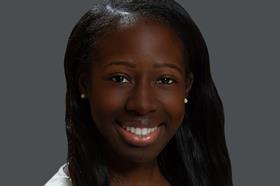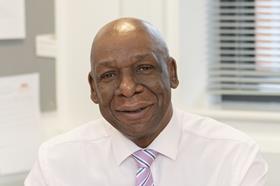Whitney Joseph, Mayer Brown International LLP, London and Law Society social mobility ambassador
'For me, working from home is not a great challenge in itself. I have a good work space set-up and most of the equipment to go with it. For many people, working from home is not a viable or practical option and, to that extent, I am thankful for the ability to transition to remote working with relative ease.

However, it must be said that from a personal perspective I don't feel as if I'm just working from home. My reality is that I’m working from home against a backdrop of an unprecedented global pandemic, an ongoing health condition which subjects me to the government’s 12 week shielding guidance - along with the actual complications of my condition - and the trauma of recent and widely publicised deaths of black Americans. That’s where my difficulty lies, and it would be wrong for me not to confess that I have found this situation mentally challenging and somewhat exhausting.
I initially found myself under pressure to continue as normal, despite this not being a normal experience in any way. I think it’s extremely important to recognise that each of us are dealing with the circumstances differently and where some of us find positives, others may find negatives. Having now recognised this fact, I’ve begun to focus on finding coping mechanisms to help make this situation slightly more manageable. It is not an exact science, more a work in progress but I am confident that this experience will no doubt help me to develop skills which will serve me well in the future - both personally and professionally!'
Len Boreland, property solicitor, Julie West Solicitors, Leatherhead
'We were at the point of exchange on the sale of a property with a large outstanding mortgage - which had been vacant for several months - when lockdown was announced. Our client was in a highly anxious state and I was working remotely, from home.

At this point the buyer’s solicitors effectively closed their offices, claiming that in doing so they were following the government advice. The situation appeared bleak. What was to be done?
I did not sit back and accept the situation. Instead, I was proactive and immediately discussed the problem with colleagues at our daily Zoom team meetings, contacted other solicitors to find out if and how they were continuing to work, researched the government and industry advice and located and amended a Coronavirus Delay Clause to add to the contract. I also enlisted the assistance of the estate agent. Fully informed and armed I was able to propose solutions and persuade the buyer’s solicitor to agree to a simultaneous exchange of contracts and completion within a period of 2 weeks, thereby saving the client further delay, expense and worry. The result was one extremely satisfied client who was happy to spread the word about the excellent service he received.'
Phillip Hunter, solicitor, Hawkins Family Law
'Coronavirus, Covid-19, PPE and social distancing were perhaps just jargon from a sci-fi movie some months ago but have now become part of our day-to-day lexicon. As we adjust, it is right to reflect on how the family law arena has changed – in particular, what positives might be harvested.

Following lockdown, many practitioners and their clients observed a period of disruption and now report some adjustment with an unstable routine. Clients withheld instructions as they "watched and waited", those that wished to progress divorce proceedings or applications experienced delays greater than those ever previously seen and last-minute court hearing cancellations. For practitioners, the enforced move toward technology and remote hearings by the court has seen significant disruption. The president continues to reflect on the lessons learned thus far, having himself recently adjourned a Final Hearing in a complex care case (Re: P [2020] EWFC 32) as he felt the remote hearing would not allow "effective participation for the parent". Whilst this decision is purely case specific, the mood music from the lord chancellor, Robert Buckland QC, suggests the move toward embracing technology is here to stay.
The continuing uncertainty associated with adjourned court hearings has led many within the upper echelons of the profession to advocate for those involved in family law disputes to turn their attention toward ADR. It is hoped that parties will once again consider arbitration, mediation by video conferencing and private FDRs to resolve their disputes in a timely and efficient fashion.
Whilst the future remains uncertain, clients and practitioners will have to be deft, malleable and pragmatic in resolving their family law disputes. The epidemic and its restrictions will provide opportunities for creative solutions and even the most ardent Luddite will be swept up in the momentum of the profession as it grapples with technology and embraces ADR. No doubt the profession will consider how ante-Diluvian our former, analogue approach had been. Technology is an improvement, not a complete answer. ADR is a further string to our bow that we should all be comfortable utilising, but it is not right in every case. The profession will look back on this time as it considers the welfare of those involved within it and consider this as a sea-change moment.'
Art corner
David Fraser, Law Society Art Group member

Tea for two on L’Escalet terrace
The walk to Cape Taillat




























No comments yet